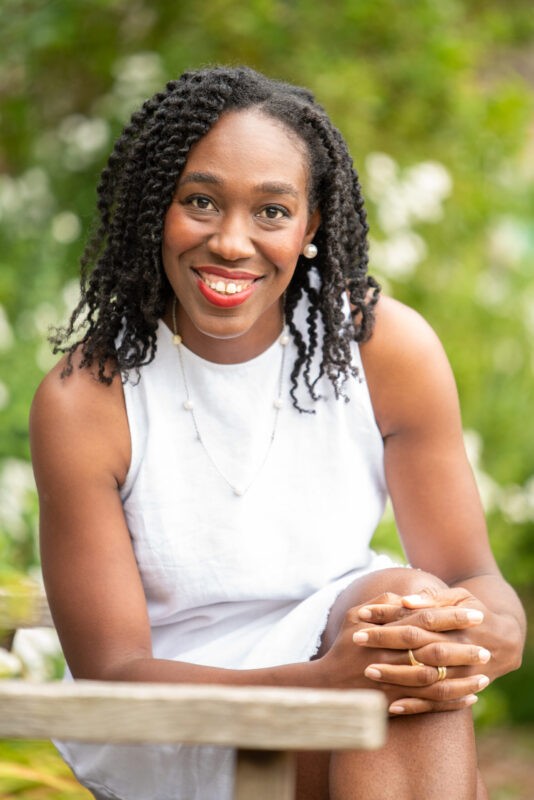SHP speaks to Shurene Bishop, Director at Bishop Simon Limited, about how she built a unique brand, what employees should know before asking for a pay rise and her advice on building confidence.

Shurene Bishop, Director, Bishop Simon Limited
Shurene Bishop is a biosafety specialist, working in the biological sciences sector. Her career started in science. She has a PhD in biological sciences and has worked in biological research roles for the University of Oxford, Public Health, England and the Institute of Cancer Research. She then came across an advert for a biosafety graduate trainee role, and stumbled across the world of health & safety, where she has stayed ever since.
After training, she worked for the Medical Research Council, later moving to Cancer Research UK. She is now Director at Bishop Simon Limited and is also Health and Biosafety Manager at the University of Surrey.
This interview is part of a series for Women in Health and Safety. As a member of the committee our goal is to amplify the voices of women in the profession. Some of the topics covered affect women more than men. Some are deeply personal. It’s our belief that we bring our whole selves to work and therefore should be able to talk about all sorts of issues that affect us, day-to-day, in a work setting.
Two things have struck us throughout this series. 1) We all have so much in common. 2) People are often very willing to open up, if they’re given a safe opportunity to do so with someone who is willing to listen without judgement. So, our hope it that issues discussed in this series resonate with readers, perhaps making some feel less alone, perhaps even giving some the confidence to share their own stories. We also hope readers will be encouraged to check in on colleagues, talk about the whole selves we bring to work and be there to listen.
Read more from this Women in Health & Safety interview series.
What do you think are the best steps that you can take to progress your career?
 “I think everybody knows the qualifications you need to progress in health and safety, but you need more than that. Self-belief is the best place to start. I think a lot of women lack confidence and you have to address that first.
“I think everybody knows the qualifications you need to progress in health and safety, but you need more than that. Self-belief is the best place to start. I think a lot of women lack confidence and you have to address that first.
“We communicate in different ways, 7% is just a spoken word, and 58% is his body language. If you’re trying to tell somebody that you are ready to take that next step, but the confidence isn’t there, it will show in your body language. So, confidence is the best place to start.
“That’s something that I had to address with myself. A book that helped me is called The Confidence Code, written by Katty Kay and Claire Shipman.
“I didn’t have enough people around me and I felt quite isolated in the job I was in. There was nobody I could convey my feelings to, so I started reading more.
“The book asks, how do you get confidence? It says confidence turns thoughts into action. If you need to do a presentation and you’re fearful the words won’t flow, and it won’t be engaging. First, you need to take that risk and step out of your comfort zone. When you do that, you’re turning your thoughts into action, strengthening your confidence muscle.”
How do you build a personal brand?
“Building a brand takes time and effort. You need to keep momentum going, find something you’re passionate about – for me, that’s volunteering.
“If I’m doing a project that I really enjoy, I’ll do it to the best of my ability, and then I’ll post about it on LinkedIn. Sometimes women feel that nobody wants to hear what they have to say, but if you can get past that, it will be easier to develop your brand.”
How should someone go about asking for pay rise?
“I have experience of asking for a pay rise and it was successful. The way I went about it was by documenting how I added value to my organisation – because I knew within myself that I was not just fulfilling the job description, I was going beyond what was required.
“I documented what I did and gathered feedback from people internally, as well as externally, this might seem strange to do, because you will probably be asking your line-manager who you are having regular one-to-ones with and you might feel you’ve already told them, but I think it’s worth doing.
“Your line manager has numerous things on their job description, and managing you isn’t their top priority, so you’re not always going to be at the forefront of their mind. You shouldn’t feel uncomfortable simply reminding them of your accomplishments.
“The other thing that I did was familiarise myself with my organisation’s pay policy. I wasn’t due for a pay rise yet, in my organisation at the time, you had to wait a certain amount of time before you could get a pay rise. But I had a word with HR and was told that actually, I’d proven I’d gone above and beyond, so they said, ‘let’s see what we can do for you’.
“So, try not to limit yourself according to just what’s written on the policy, you never know, you might be able to change somebody’s mind. Have a positive mindset and believe that you’re worth the pay rise. You want to ooze confidence when you ask. If you find you’re not believing it, think about what you can do to change that.”
How do you present with confidence?
“I don’t consider myself to be an engaging public speaker at all, however, I’m part of the IOSH Chiltern branch. I would have never put myself forward for speaking at an event – then the Chair of the committee told me I should do it, and I did. It was so nerve racking. I know that I can become an engaging public speaker, but I’m not yet, I just need to step outside my comfort zone.”
Have you ever experienced imposter syndrome?
“Yes, very recently. When I recognised that I was experiencing imposter syndrome the first thing that I did was get on the phone to a friend I trusted. She talked me through it and gave me the confidence I needed to keep pushing forward.
“I believe we are social creatures, even professionally, and we have to draw on the strengths of one another. We should ensure that we surround ourselves with good people that we can call on to help us through.
“In this example, I didn’t believe in myself, but she did, and I trusted her, so I was willing to take the risk.”
For more information about the Women in Health & Safety Network, see our hub page here.
Read more from this Women in Health & Safety interview series.
Developing non-technical skills and overcoming a lack of confidence
In this episode of the Safety & Health Podcast we are joined by Anna Keen, Founding Director at Acre Frameworks, who provides guidance on learning the relevant skills to progress your career and delves into confidence, including how to present yourself and tips for leaders when dealing with Imposter Syndrome.
Making the leap into gas
Gina Siebler shares her experiences of moving into a new industry, discussing how she overcame the challenges and how she has adapted, highlighting that a lack of experience in a specific sector, doesn’t need to be a stumbling block when progressing your career.
Click here to read more…
Advance your career in health and safety
Browse hundreds of jobs in health and safety, brought to you by SHP4Jobs, and take your next steps as a consultant, health and safety officer, environmental advisor, health and wellbeing manager and more.
Or, if you’re a recruiter, post jobs and use our database to discover the most qualified candidates.


 “I think everybody knows the qualifications you need to progress in health and safety, but you need more than that. Self-belief is the best place to start. I think a lot of women lack confidence and you have to address that first.
“I think everybody knows the qualifications you need to progress in health and safety, but you need more than that. Self-belief is the best place to start. I think a lot of women lack confidence and you have to address that first.